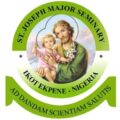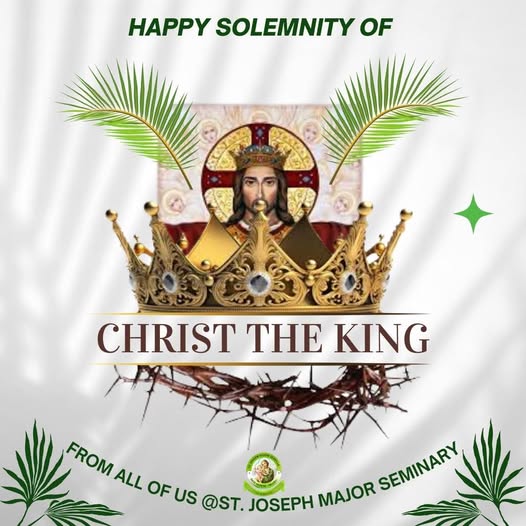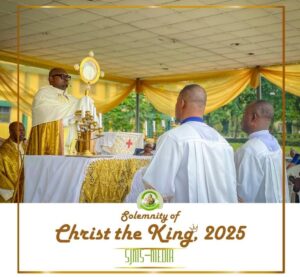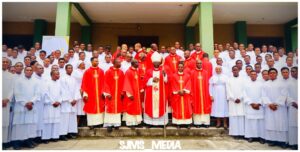The Holy Mass was precided by Rev. Fr. Dr. Kenneth Odibu, the priest who seats at the head of the Seminary Liturgy. In his homil:
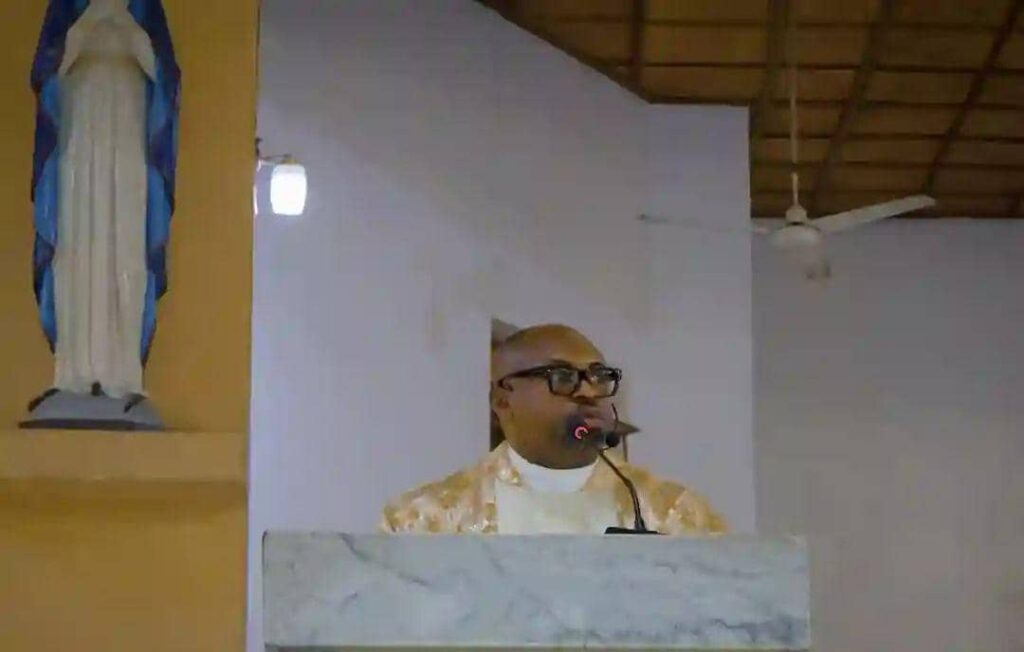
Quas Primas (1925) by Pope Pius XI, in his encyclical letter on the Kingship of Christ, Pope Pius XI explains the double foundation of Christ’s dominion over all thins; it belongs to him as the God-man and as Redeemer. That is Kingship is Spiritual. It also extends in a certain sense to civil matters.
Today’s feast was instituted as a rallying – call to all Christians to acknowledge the sovereignty of our king over earthly powers, kingdom and peoples. This call was very necessary in our age when worldliness and earthly ambitions were drawing the winds of men further away from God and Christ, and from their own eternal interests. Our 20th century has seen not only countries denying the existence of God and future life but nations that were once Christians have been forced to live under atheistic regimes which forbids the public practice of religion. It was to counteract and stem this growing infidelity that Pope Pius XI instituted the feast in honour of Christ the King; he wanted to remind Christians of the fidelity and loyalty they owed to Christ who by his incarnation had made them adopted Children of God and future citizens and heirs of the Kingdom of heaven.
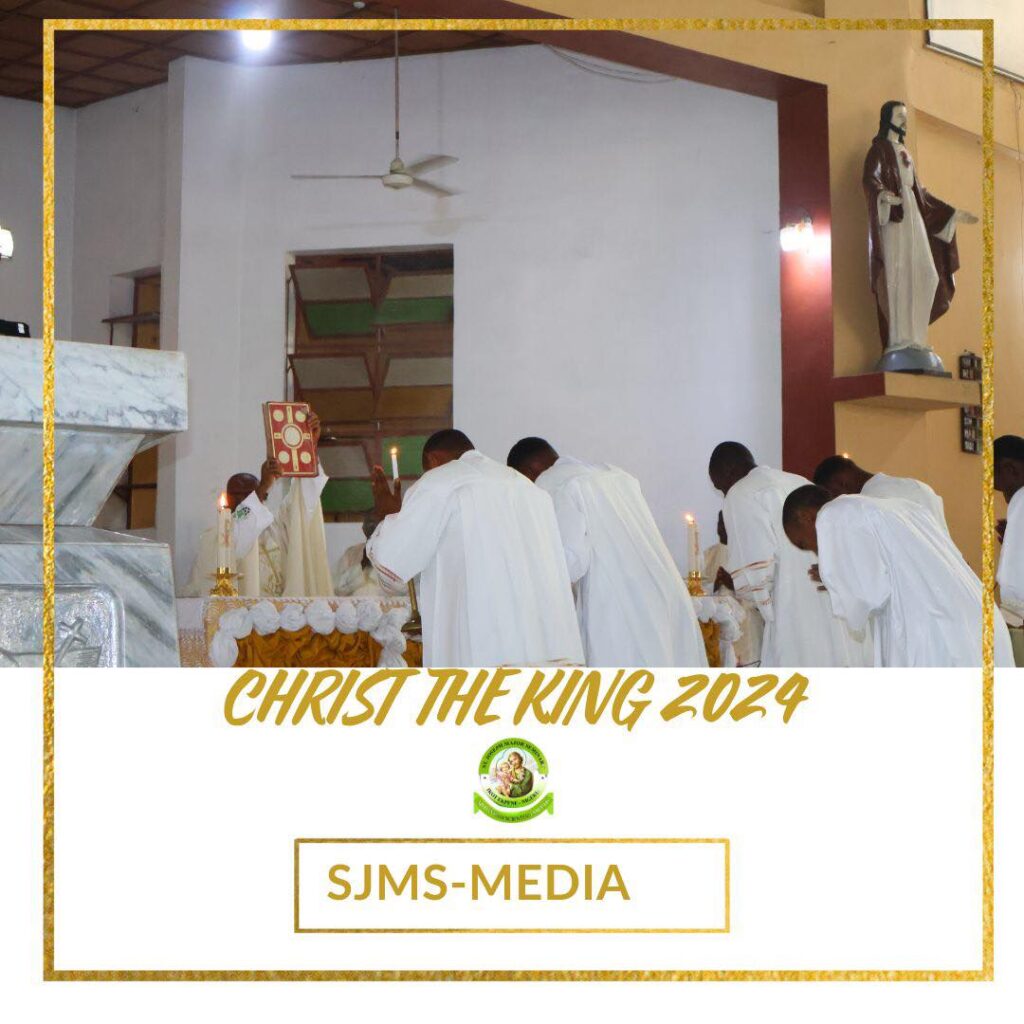
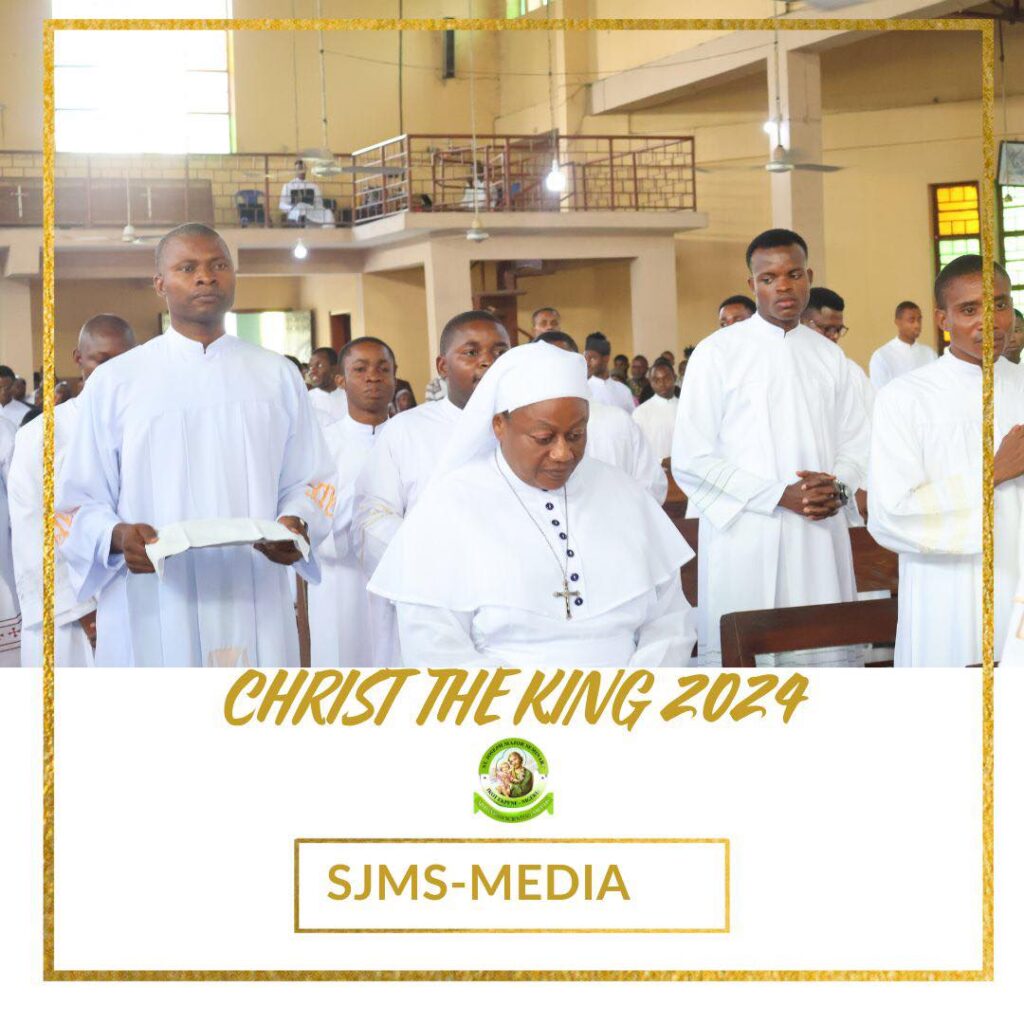
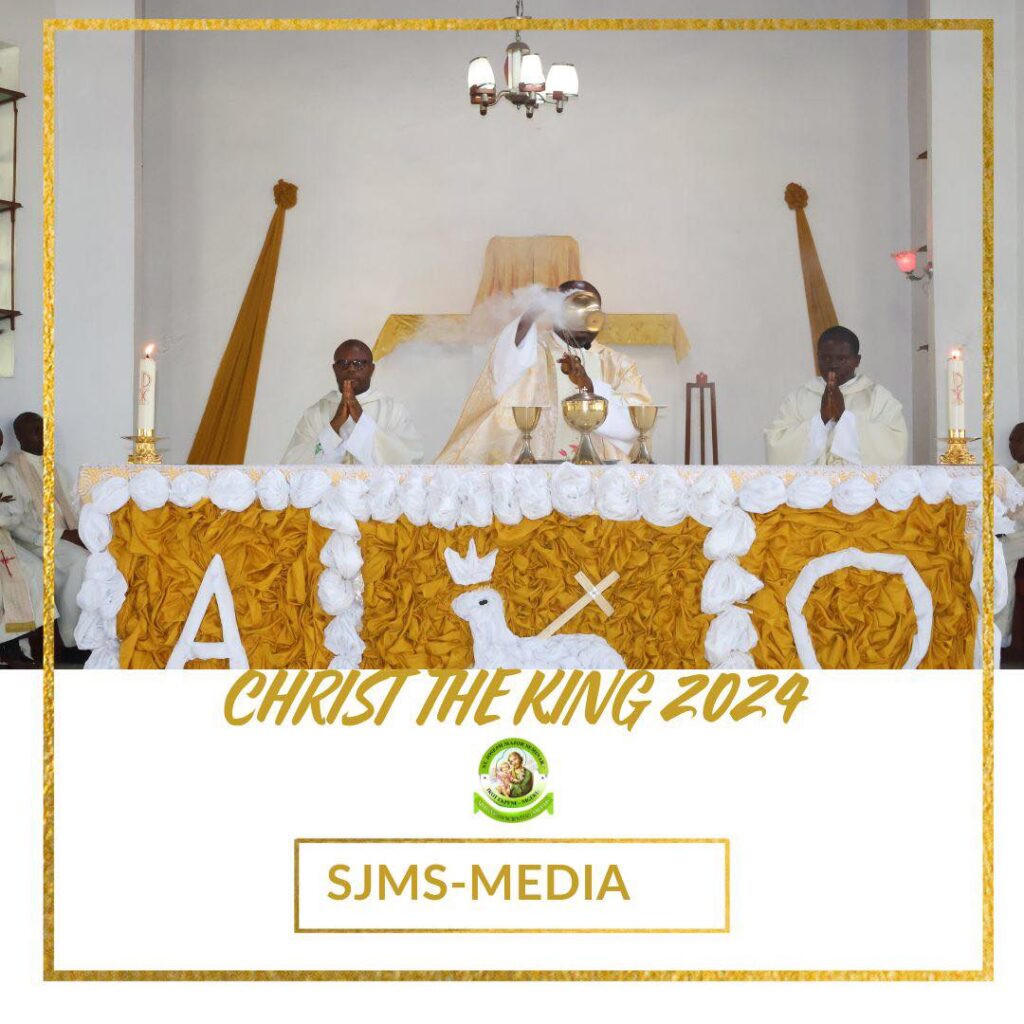
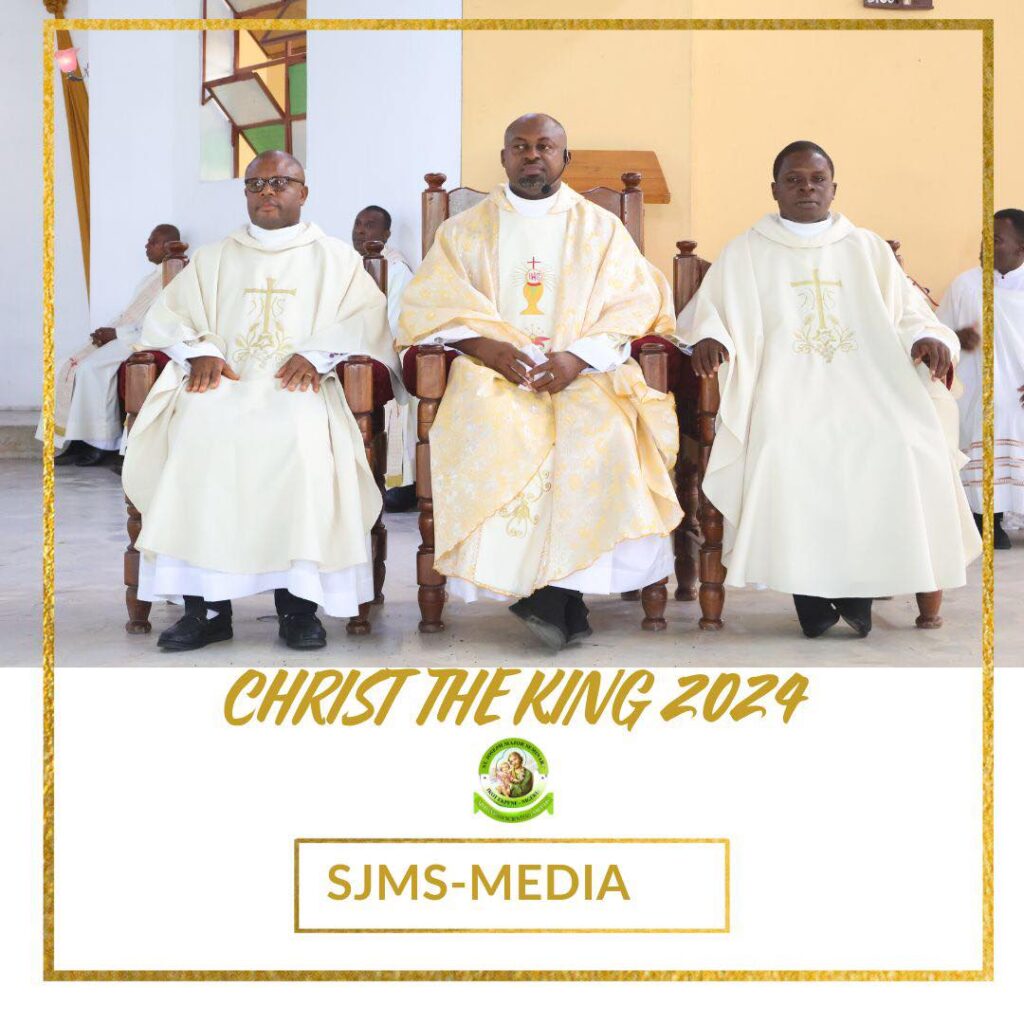
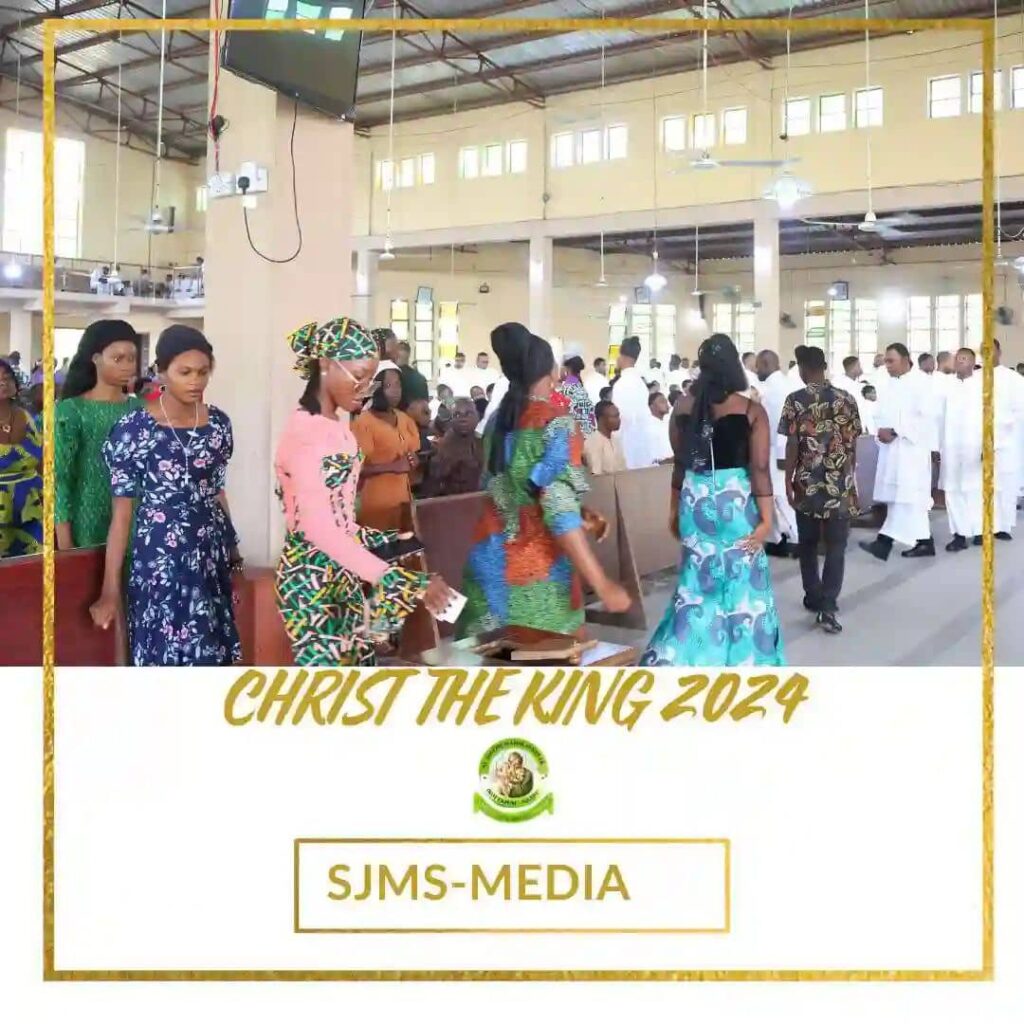
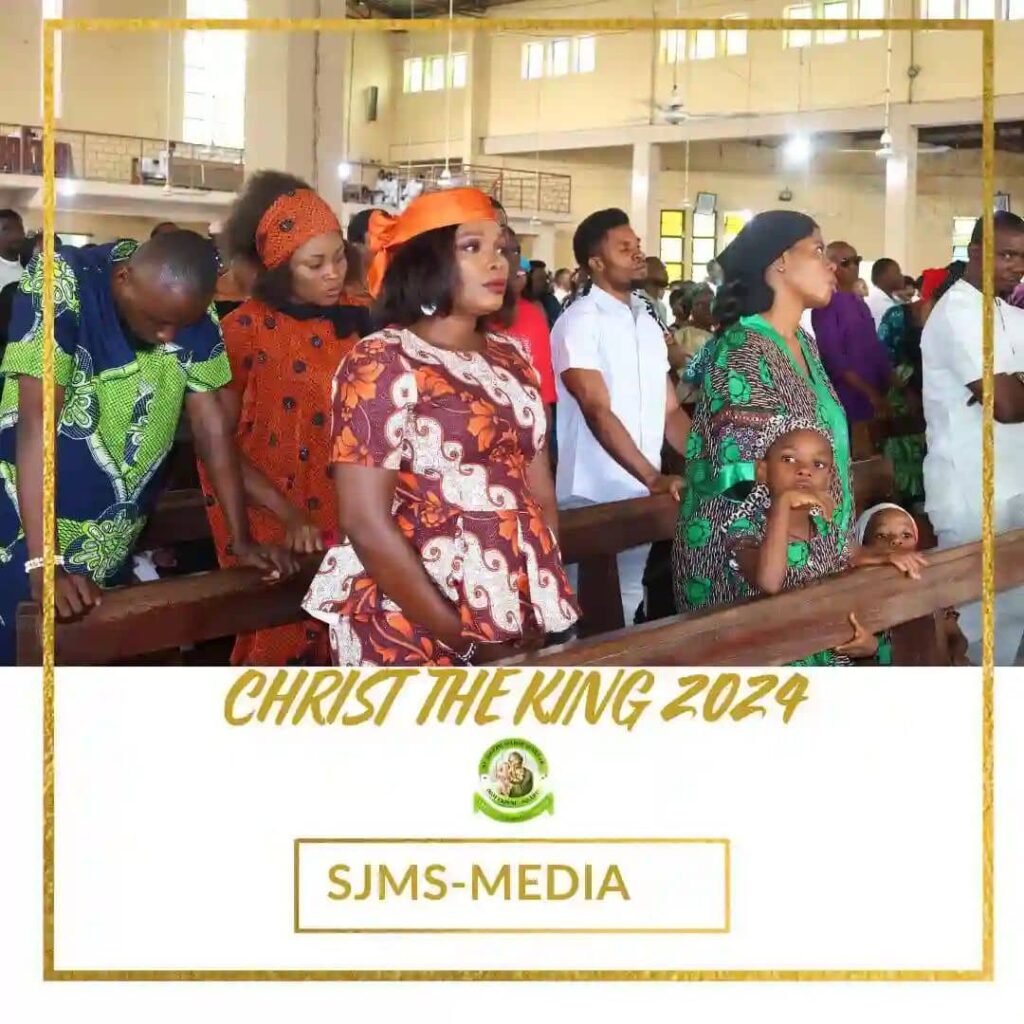
As messiah, Jesus was a king – the Messianic descendant promised to David, but he was not a king in the Roman sense of the word.
In honouring Christ today as our king, let us especially thank him for all the humiliations and sufferings he endured on our behalf. If our Christian we of living makes some demands on us let us not forget how trivial they are when compared with what Christ’s earthly life cost him. Let us promise to be grateful and loyal subjects of his for the rest of our days. He has made us members of his kingdom on earth – the church – and in preparing a place for us in his everlasting kingdom. Let no one be so foolish as to forfeit an eternal happiness because of some earthly attachment to the passing things of this world.
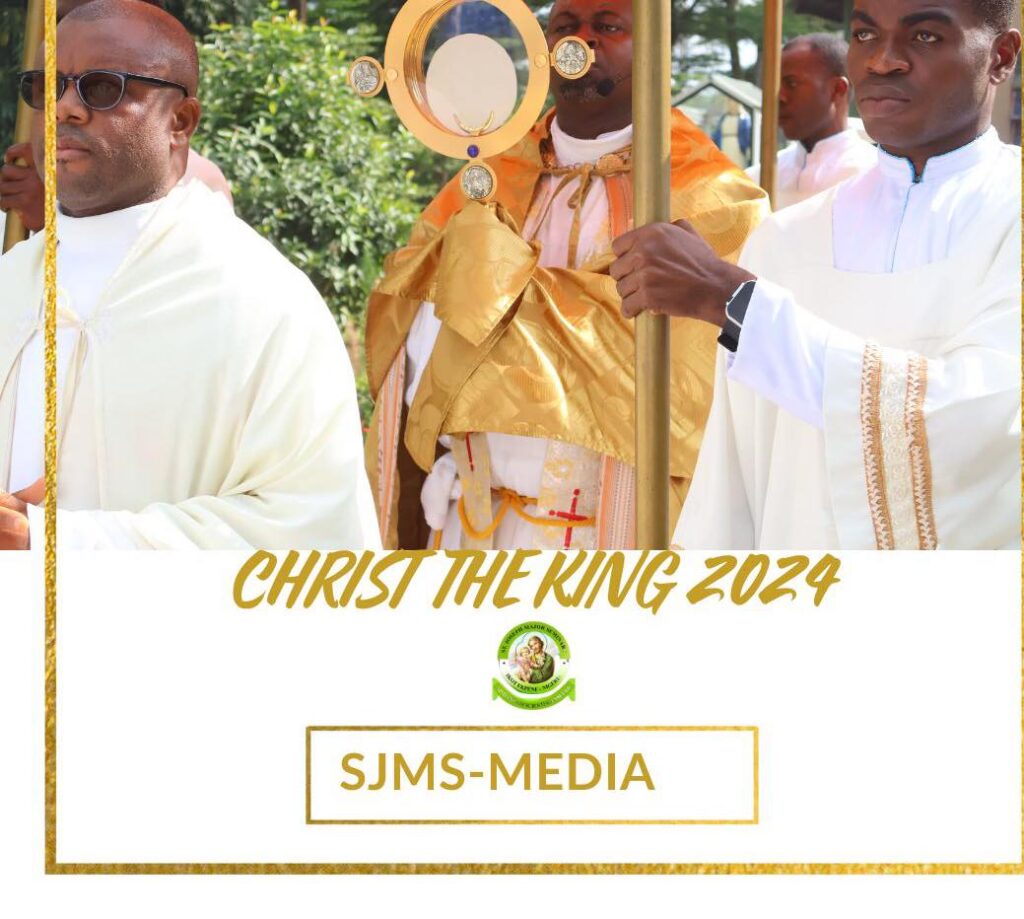
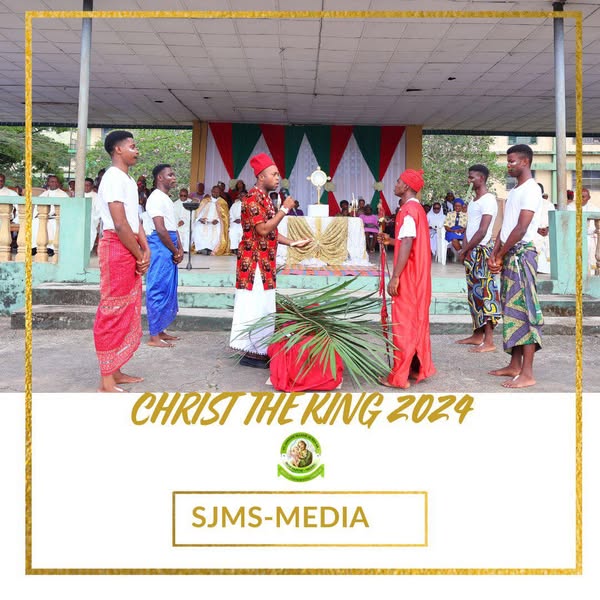
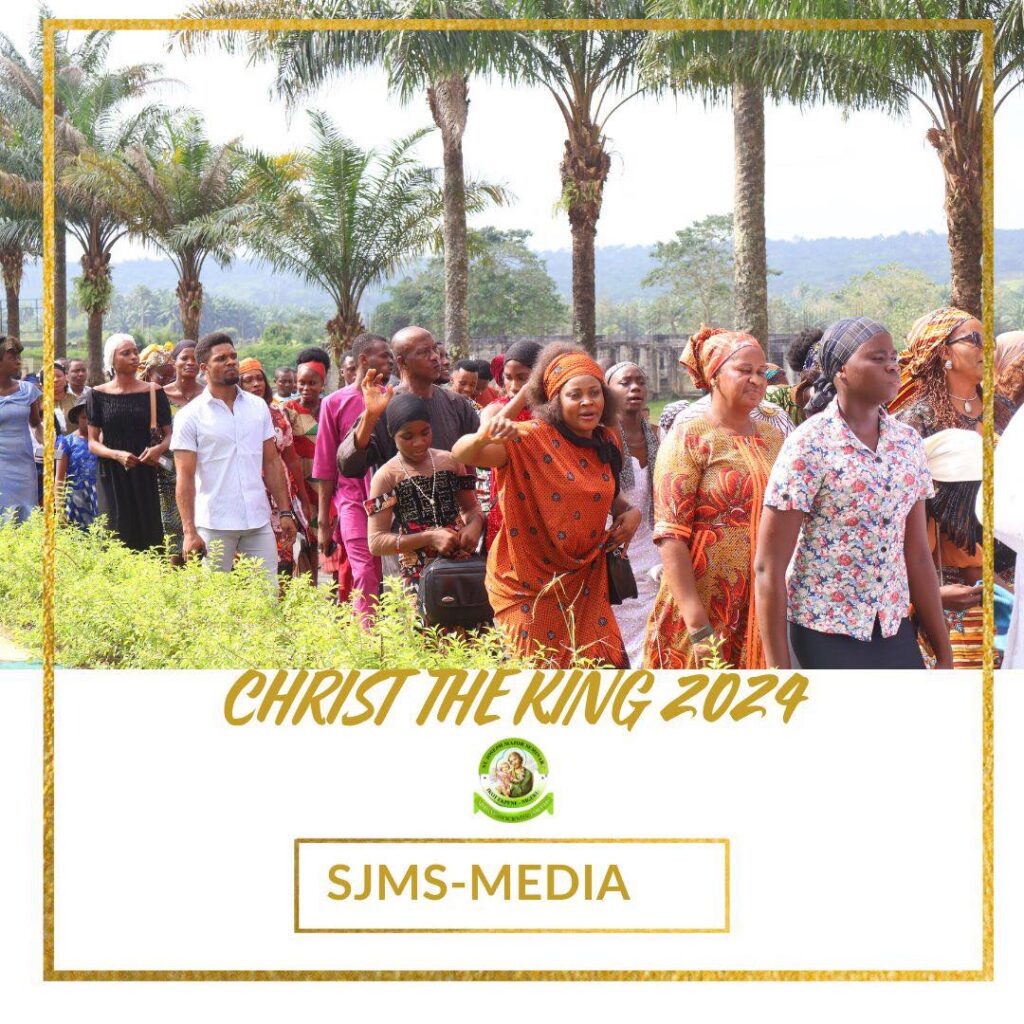
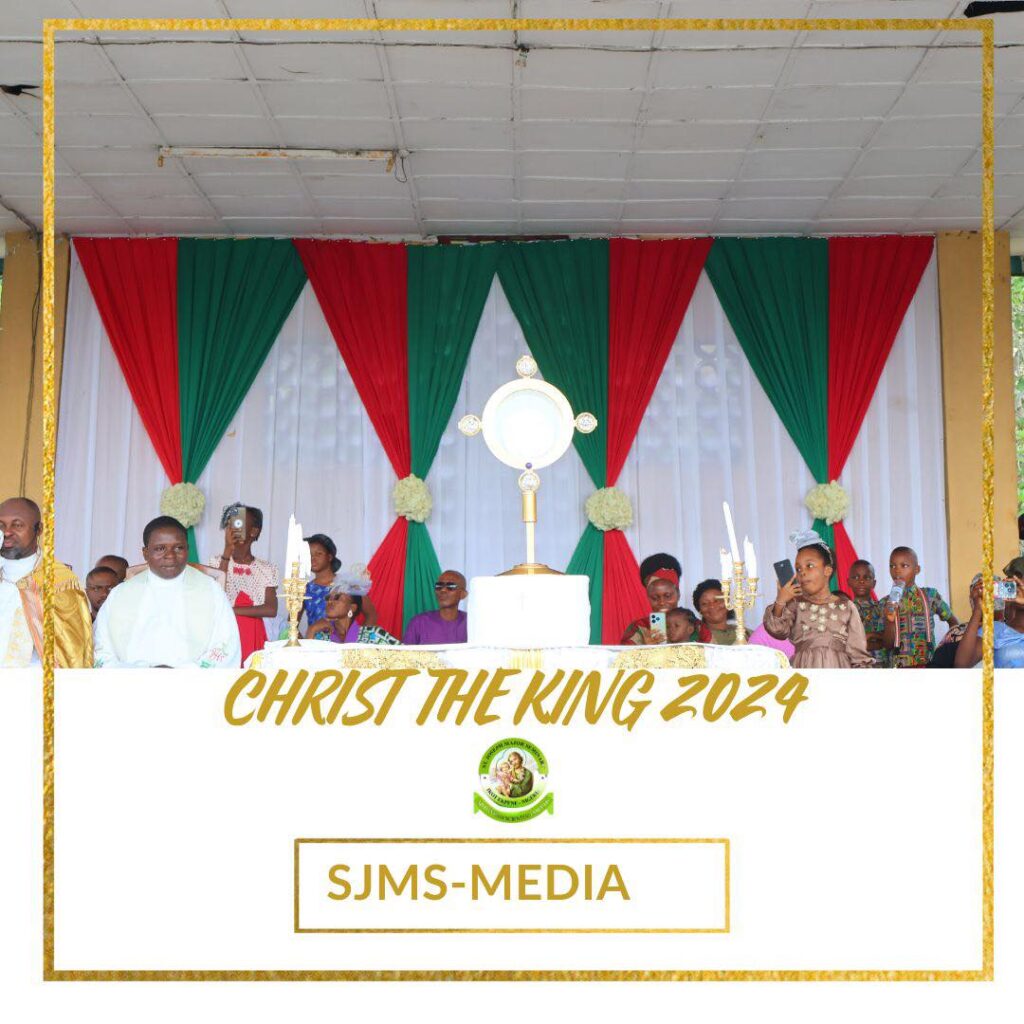
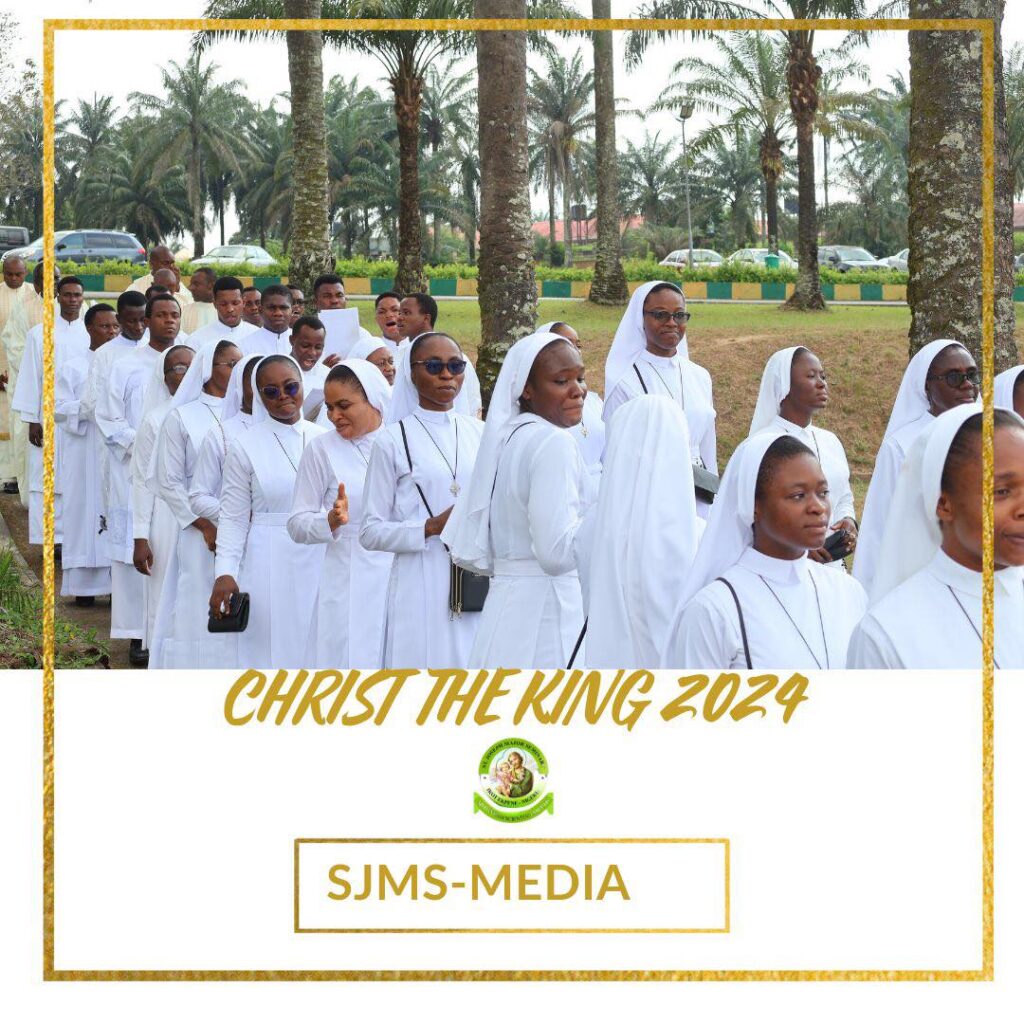
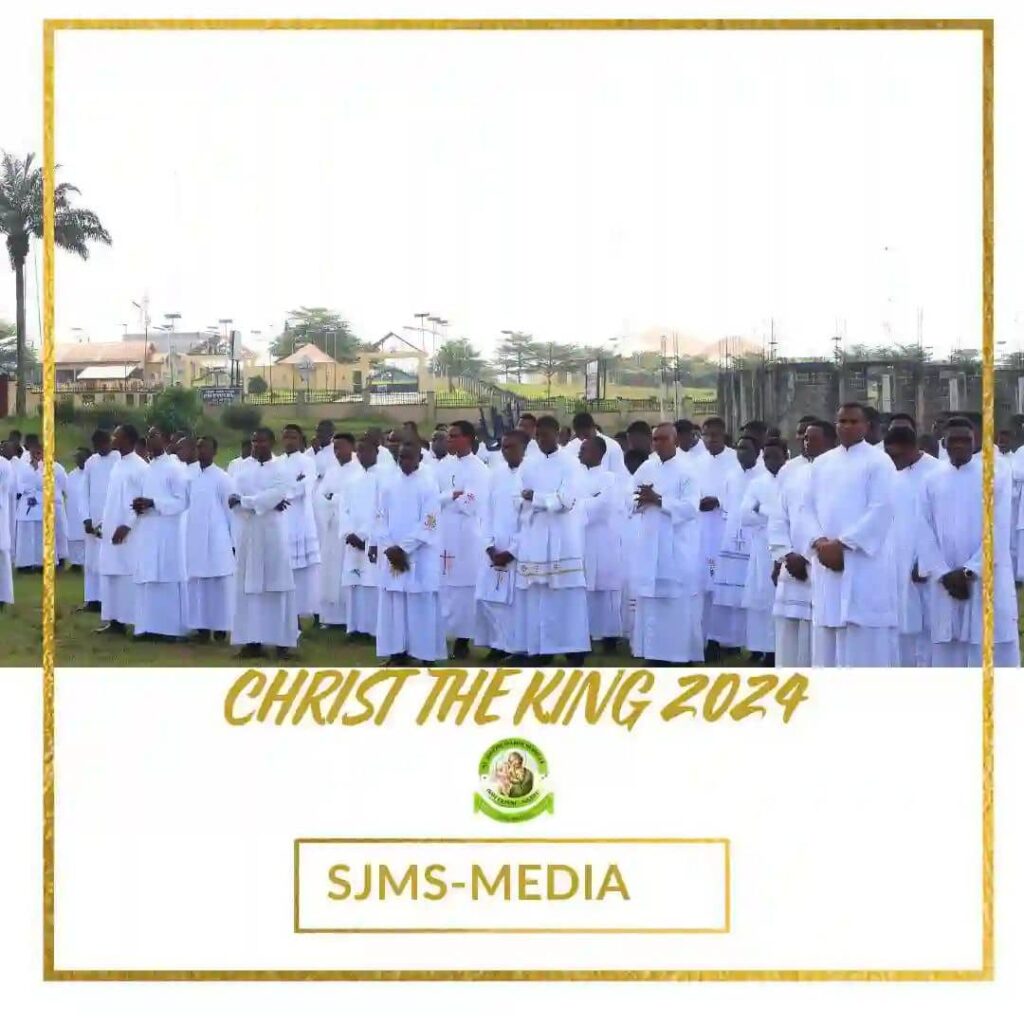
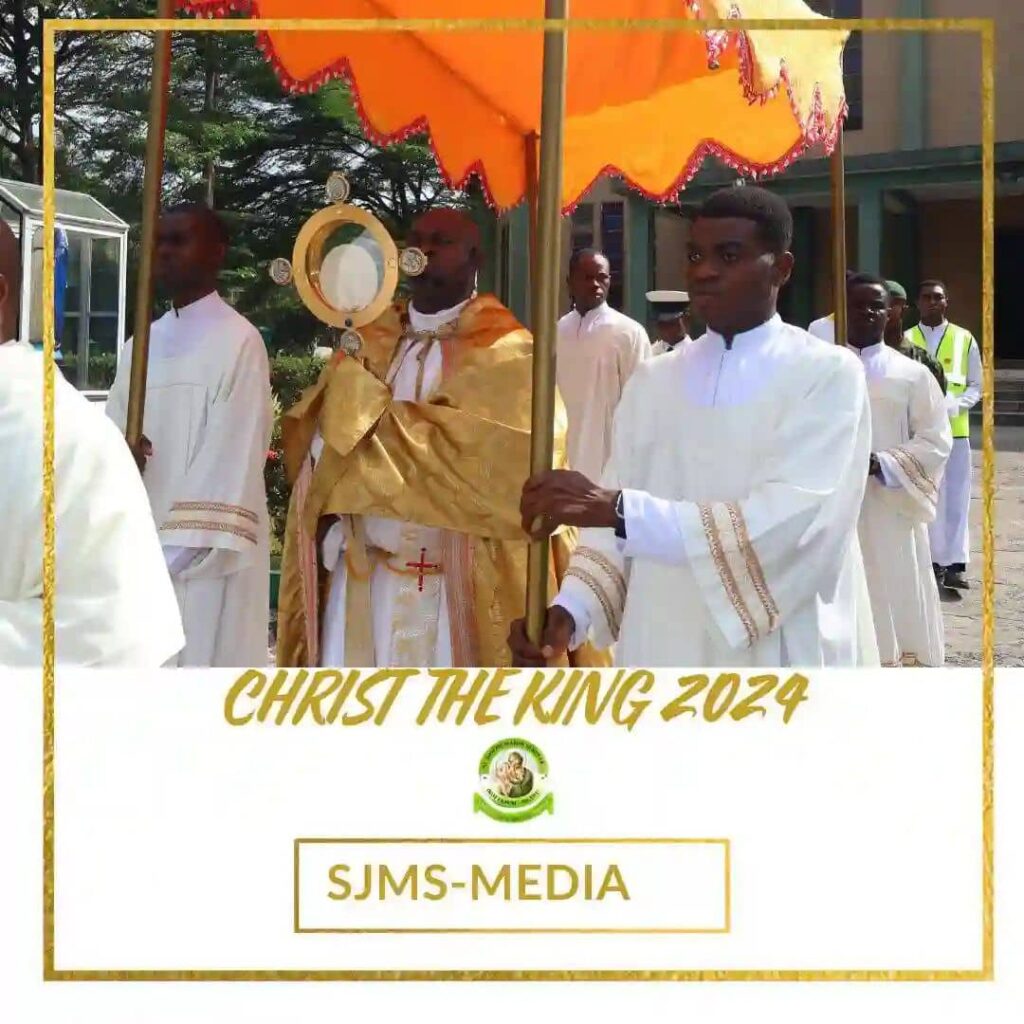

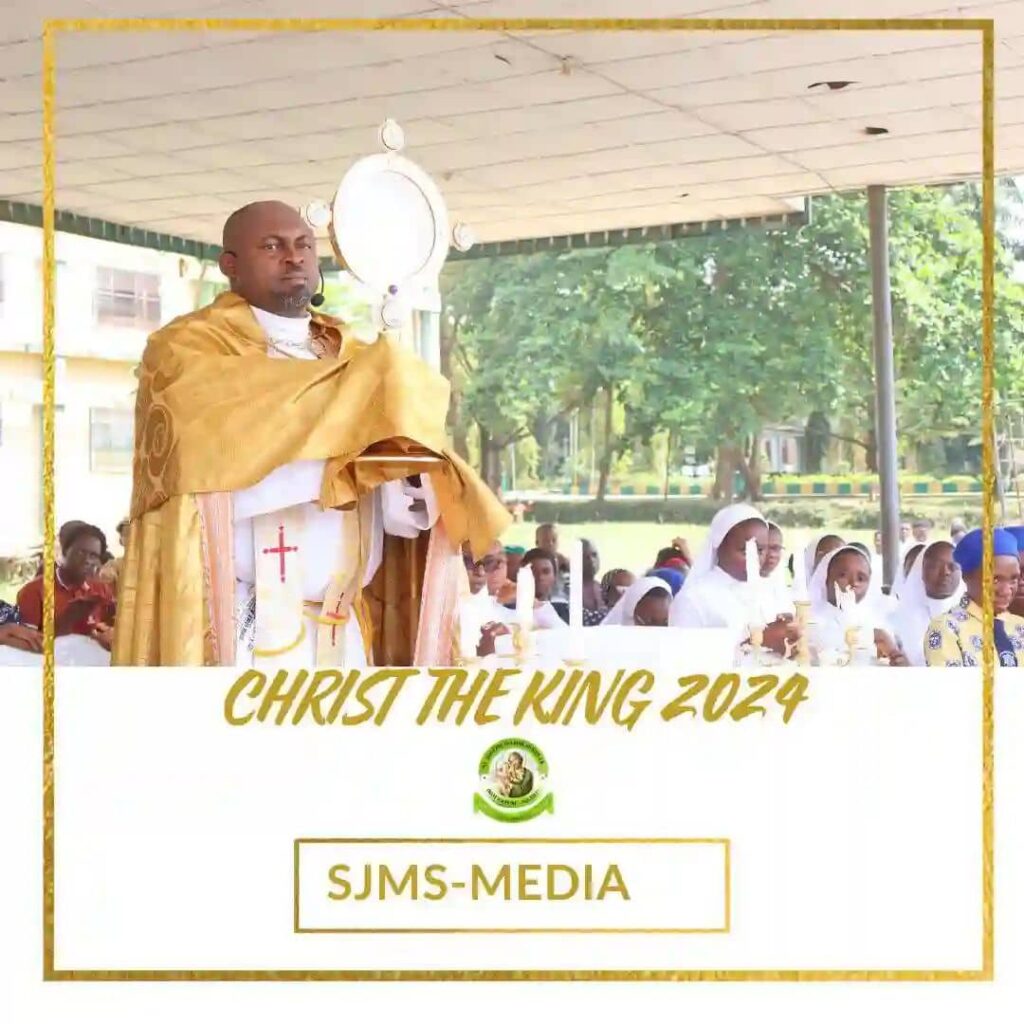
The term kingdom of God originates within Jewish scriptures with earthly references to Yahweh as king (Deut 33:5) with an eternal reign (Ex 15:18). Israel becomes God’s chosen people and experiences Yahweh acting on her behalf (Ex 15: 11-13). The kingdom of God is an integral part of Israel’s faith, and after the period of monarchy and exile, Israel hopes focused on a future king from the line of David and a restoration of the kingdom. This eschatological emphasis offered hope to the people. Later writings refer to final, universal, and eternal kingdom and contain apocalyptic imagery (Dan 7: 13-28). Because of this emphasis in Judaism, people ready for Jesus’ preaching of the kingdom of God and the insights he offered.
The synoptic Gospels contain most of the New Testament teachings on the kingdom. In Mark’s Gospel for example, begins his public ministry by announcing that the kingdom of God is at hand and later refers to its immanence. The kingdom (basileia in Greek), also called the reign of God or the kingdom of heaven, has future dimension as well (Matt 25: 34); the parable of Jesus emphasizes the kingdom as both present and future. The theme of the kingdom of God was the centerpiece of Jesus preaching. Characteristics of the kingdom include an aura of mystery, an otherworldly character, an association with the Parousia and eternal life; and a relationship to righteousness, and holy in spirit. Membership in the kingdom requires conversion, and participation is open to all, especially the poor, lowly and suffering. The Gospel stress childlike qualities and a life of active obedience as requirement for the kingdom.
As we live in anticipation of the fullness of the kingdom, we have a responsibility to create a world more keeping with the values of the reign of God. A radical inbreaking of the kingdom occurred with Jesus’ preaching, and his death was a step in its development, but the new era will be fully realized in his second coming and the completion God’s salvific action.
Where is his kingdom?

His throne the cross; His crown, the thorns; No soldier nor lawyer to argue his case, little wonder he said his kingdom is not of this world. Where is his kingdom? Gerard Darring said: “it exists in every home where parents and children love each other; in every country that cares for its weak and vulnerable; in every parish that reaches out to the needy. The kingdom of God is in the past – in the life and work of Jesus of Nazareth; it is in the present – in the work of the Church to foster peace – when it reaches its completion in the age to come – the Parousia.
Jesus Christ is every rich, not just king, but the ruler of kings of the earth (Rev. 1: 5). But his kingdom is not of this world that is why we celebrate the feast of our king with no gunshots in the morning, military parade in the afternoon, and presentation of arms in the evening. His kingly power is awesome; his royal authority comes from his being not only a witness to truth, but being the truth itself. (A king without a horse, no soldier, no guards, no palace, no maiden, no slaves, no banknotes and accounts, no treasure box, no degrees, no land etc.), this is why his kingdom does not seek to increase its wealth but to promote peace, not to expand its border but to establish justice, not to inflate its own image but to lead people to freedom, all in the name of truth.

He is not like the earthly kings some of whom have tittles than subjects. His kingdom is unique; he never wanted to keep his kingship all to himself, instead, he shared it with us all. This is what happens at our baptism when the priest pour holy oil on our head, says, “I anoint you priest, prophet and king.” Thus, Christ has made us a royal nation (Rev. 1: 6) in which each of us is like the son of man coming on the clouds of heavens, receiving dominion, glory and kingship (Dan 7: 13-14).
Sharing in the kingship of Christ is glorious but precarious, for it is demanding. As Christ bore witness to truth, lived by it and died for it, we too, by virtue of the gift of truth received in our heart at baptism, are called to speak only the truth, unattended by a bodyguard of lies and of course to spread the truth from pole to pole. Since the truth we have received is not just in our minds but in our hearts, we have not only to speak it but to do it, in justice and love. This means we have to get rid of selfishness and be concerned for the rights and welfare of others, especially the less fortunate, including the prisoners who languish in solitary confinement facing bare walls day and night. But let us admit it; the surest way to be lonesome is always to tell the truth, worse still, to be the truth. Christ stood alone before Pilate, dirty and beaten, but courageous and confidence for he knew full well that truth crushed to earth will rise again. We too, stamped with the image of our king and trusting in the armor of our royalty, must witness to truth in love.
All other feast of our Lord which we celebrate throughout the year reminds us of all that Christ has done for us, but todays should call to our minds what we are to do for him in return. Unlike the kings of earthly kingdoms who rightly expect their loyal subjects to die for them and their nation, if need be, our king, Christ, died for us in other to make us free citizens of his kingdom. Christians are citizens of their homeland and citizens of Christ’s kingdom – Double citizenship.
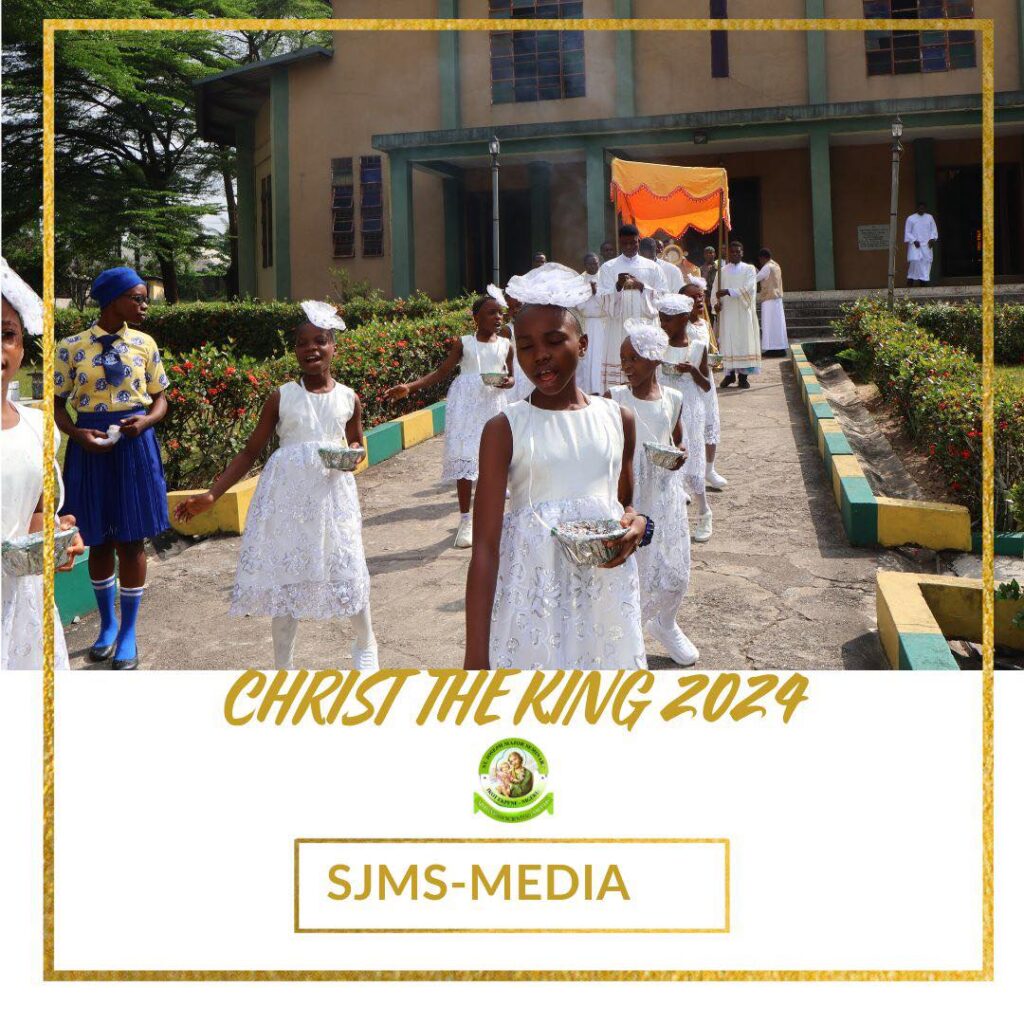
How loyal are we to Christ as good citizens of his kingdom? Do we sincerely love God and our neighbours? Whose kingship are you loyal to or submit to, who rules over your life? Jesus’ kingdom is a new kind of kingship and kingdom – one rooted in truth, one where authority is for love and service and not domination and control. We are called to renew our allegiance to Christ as king of heaven and earth.
